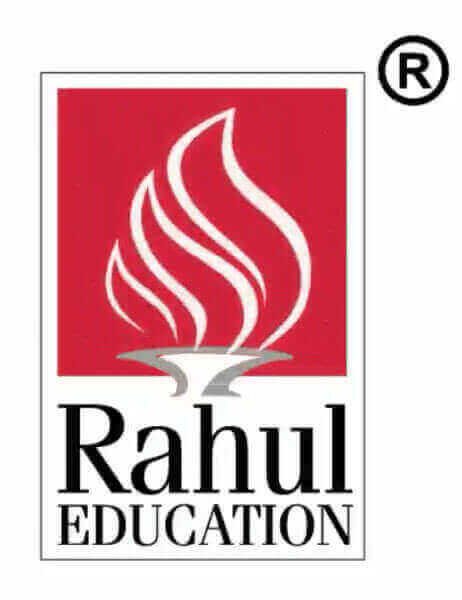INTERNAL COMPLAINTS COMMITTEE (ICC) AT SLRTCL
Introduction: The Internal Complaints Committee (ICC) at Shree L R Tiwari College of Law (SLRTCL) is established to ensure a safe and respectful environment for all students and staff. It addresses complaints of sexual harassment, discrimination, and any form of misconduct. The ICC operates under the guidelines of the Sexual Harassment of Women at Workplace (Prevention, Prohibition and Redressal) Act, 2013, promoting a culture of dignity and respect within the institution.
Objectives: The objectives of the ICC are as follows:
- Prevention of Harassment: To prevent incidents of sexual harassment and discrimination in the college premises.
- Support for Complainants: To provide a safe and confidential space for individuals to report incidents of harassment without fear of retaliation.
- Awareness Programs: To conduct workshops and awareness programs on gender sensitivity and legal rights concerning sexual harassment.
- Fair Investigation: To ensure that all complaints are investigated impartially and that appropriate action is taken based on the findings.
- Policy Formulation: To recommend policies and procedures to improve the campus environment and ensure compliance with legal standards.
Principles: The ICC adheres to the following principles:
- Confidentiality: The identity of the complainants and details of the complaints are kept confidential throughout the process.
- Impartiality: All complaints are investigated fairly without bias towards any party involved.
- Timeliness: The committee aims to address complaints in a timely manner to ensure swift resolution.
- Supportive Environment: The ICC promotes a culture where students feel empowered to speak up against harassment.
Composition of the ICC: The ICC is comprised of members from various backgrounds to ensure a balanced perspective. The composition includes:
- Chairperson: A senior female faculty member who leads the committee and ensures compliance with legal provisions.
- Faculty Members: Two to three faculty members from different departments who participate in the investigation and resolution of complaints.
- Student Representatives: Two student representatives, one male and one female, who provide insights from the student body.
- External Expert: An external member, preferably from the legal field, who offers independent guidance on serious matters.
Roles and Responsibilities of Committee Members:
- Chairperson: Responsible for overseeing the committee’s functions, leading meetings, and ensuring compliance with relevant laws.
- Faculty Members: Assist in investigating complaints and provide recommendations for resolution.
- Student Representatives: Act as liaisons between the committee and the student body, ensuring students’ perspectives are considered.
- External Expert: Offers legal advice and expertise, particularly in complex cases.
Procedure for Filing and Addressing Complaints: The ICC follows a structured process for handling complaints:
- Filing a Complaint: Individuals can file a complaint through the ICC Complaint Form, available both online and in the administrative office.
- Acknowledgment: Upon receiving a complaint, the ICC acknowledges it within a stipulated timeframe.
- Investigation: The committee conducts a detailed investigation, which may involve interviews with the complainant, accused, and witnesses.
- Hearing: Both parties are given the opportunity to present their case during a hearing.
- Deliberation: The ICC deliberates on the findings and arrives at a decision based on evidence and testimonies.
- Communication of Outcome: The outcome is communicated to both the complainant and the accused, detailing the findings and actions taken.
- Follow-up: The ICC conducts follow-up actions to ensure the implementation of recommendations and to monitor the situation.
Common Types of Complaints Addressed: The ICC addresses a variety of issues, including:
- Sexual harassment: Any unwelcome behavior of a sexual nature that creates a hostile environment.
- Discrimination: Complaints related to unfair treatment based on gender, caste, or any other identity.
- Retaliation: Issues arising from punitive actions taken against individuals for reporting harassment.
Forms: The ICC Complaint Form includes:
- Personal Details: Name, contact information, and relationship to the institution.
- Details of the Incident: A comprehensive description of the incident, including dates, locations, and individuals involved.
- Evidence: Any supporting documents, emails, or witnesses that can substantiate the complaint.
- Desired Outcome: Suggestions for how the complainant would like the issue to be resolved.
Preventive and Awareness Measures: The ICC conducts regular awareness programs and workshops on sexual harassment prevention and gender sensitivity, ensuring that students and staff are well-informed about their rights and responsibilities.
Conclusion: The Internal Complaints Committee (ICC) at SLRTCL is committed to creating a safe and equitable environment for all students and staff. By addressing complaints with sensitivity and thoroughness, the ICC plays a crucial role in promoting dignity and respect within the college community.


